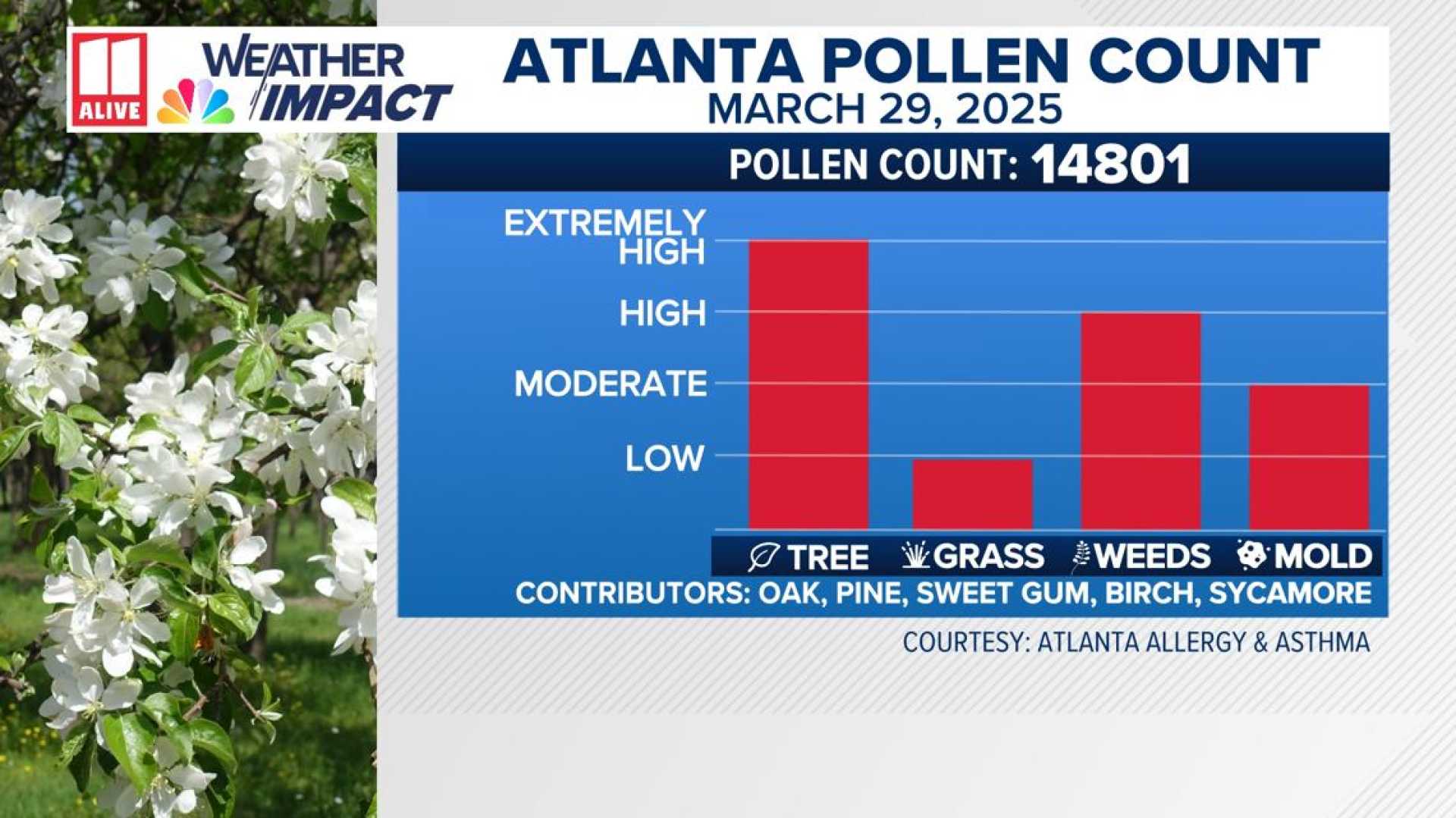Health
Atlanta Sets New Pollen Record Amid Worst Allergy Season

ATLANTA — Atlanta is enduring an unprecedented pollen season, with record-high counts reaching 14,801 pollen grains per cubic meter recorded on Saturday, breaking the previous record of 9,369 set in March 2012.
The surge in pollen is primarily attributed to oak, pine, sweet gum, birch, and sycamore trees, all of which are releasing significant amounts of pollen this spring.
While Sunday’s count dropped to 11,159 pollen grains, it remains alarmingly high and marks the second highest level ever recorded for the city. Last year, the peak pollen count was 8,740, which was notable at the time for being the third highest in history.
The peak of the pollen season in Atlanta is expected to continue for several more weeks. Typically, the city experiences around a dozen days classified as ‘extremely high’ for pollen, all occurring in spring. As of now, 2025 has already seen six days above this extreme threshold.
According to the Centers for Disease Control and Prevention, approximately 25% of adults and 20% of children in the United States suffer from seasonal allergies. For those feeling the effects, Dr. Lily Hwang from Atlanta Allergy & Asthma recommends starting with over-the-counter nasal sprays and antihistamine eye drops as initial remedies.
“If these methods do not alleviate symptoms, seeking the help of an allergist may be beneficial to determine specific triggers and explore personalized treatment options,” Dr. Hwang stated.
To minimize pollen exposure, experts suggest several practical tips, including keeping windows and doors closed, setting air conditioning units to recirculate air, and showering after outdoor activities to wash off any lingering pollen from skin and hair. Wearing sunglasses can also help protect eyes, while wiping down pets after spending time outside can prevent them from bringing pollen indoors.
In addition, individuals are advised to leave shoes at the door and to avoid going outside during peak pollen hours, particularly in the afternoons. Proactive allergy medication intake before symptoms begin is also crucial during this high-alert season.
The community and healthcare providers continue to monitor the pollen situation, providing updates and support as residents cope with this challenging allergy season.












